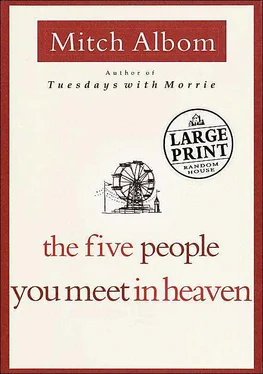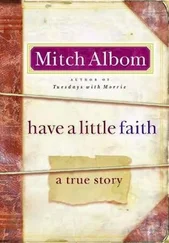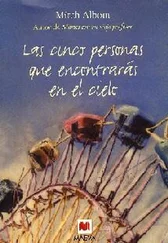“He was coughing,” his mother explained. “It just got worse. We should have called a doctor right away…” She drifted in her words. He’d gone to work that day, she said, sick as he was, with his tool belt and his ball peen hammer—same as always—but that night he’d refused to eat and in bed he’d hacked and wheezed and sweated through his undershirt. The next day was worse. And now, this afternoon, he’d collapsed.
“The doctor said it’s pneumonia. Oh, I should have done something. I should have done something…”
“What were you supposed to do?” Eddie asked. He was mad that she took this on herself. It was his father’s drunken fault.
Through the phone, he heard her crying.
Eddie’s father used to say he’d spent so many years by the ocean, he breathed seawater. Now, away from that ocean, in the confines of a hospital bed, his body began to wither like a beached fish. Complications developed. Congestion built in his chest. His condition went from fair to stable and from stable to serious. Friends went from saying, “He’ll be home in a day,” to “He’ll be home in a week.” In his father’s absence, Eddie helped out at the pier, working evenings after his taxi job, greasing the tracks, checking the brake pads, testing the levers, even repairing broken ride parts in the shop.
What he really was doing was protecting his father’s job. The owners acknowledged his efforts, then paid him half of what his father earned. He gave the money to his mother, who went to the hospital every day and slept there most nights. Eddie and Marguerite cleaned her apartment and shopped for her food.
When Eddie was a teenager, if he ever complained or seemed bored with the pier, his father would snap, “What? This ain’t good enough for you?” And later, when he’d suggested Eddie take a job there after high school, Eddie almost laughed, and his father again said, “What? This ain’t good enough for you?” And before Eddie went to war, when he’d talked of marrying Marguerite and becoming an engineer, his father said, “What? This ain’t good enough for you?”
And now, despite all that, here he was, at the pier, doing his father’s labor.
Finally, one night, at his mother’s urging, Eddie visited the hospital. He entered the room slowly. His father, who for years had refused to speak to Eddie, now lacked the strength to even try. He watched his son with heavy-lidded eyes. Eddie, after struggling to find even one sentence to say, did the only thing he could think of to do: He held up his hands and showed his father his grease-stained fingertips.
“Don’t sweat it, kid,” the other maintenance workers told him. “Your old man will pull through. He’s the toughest son of a gun we’ve ever seen.”
Parents rarely let go of their children, so children let go of them. They move on. They move away. The moments that used to define them—a mother’s approval, a father’s nod—are covered by moments of their own accomplishments. It is not until much later, as the skin sags and the heart weakens, that children understand; their stories, and all their accomplishments, sit atop the stories of their mothers and fathers, stones upon stones, beneath the waters of their lives.
When the news came that his father had died—“slipped away,” a nurse told him, as if he had gone out for milk—Eddie felt the emptiest kind of anger, the kind that circles in its cage. Like most workingmen’s sons, Eddie had envisioned for his father a heroic death to counter the commonness of his life. There was nothing heroic about a drunken stupor by the beach.
The next day, he went to his parents’ apartment, entered their bedroom, and opened all the drawers, as if he might find a piece of his father inside. He rifled through coins, a tie pin, a small bottle of apple brandy, rubber bands, electric bills, pens, and a cigarette lighter with a mermaid on the side. Finally, he found a deck of playing cards. He put it in his pocket.
The funeral was small and brief. In the weeks that followed, Eddie’s mother lived in a daze. She spoke to her husband as if he were still there. She yelled at him to turn down the radio. She cooked enough food for two. She fluffed pillows on both sides of the bed, even though only one side had been slept in.
One night, Eddie saw her stacking dishes on the countertop.
“Let me help you,” he said.
“No, no,” his mother answered, “your father will put them away.”
Eddie put a hand on her shoulder.
“Ma,” he said, softly. “Dad’s gone.”
“Gone where?”
The next day, Eddie went to the dispatcher and told him he was quitting. Two weeks later, he and Marguerite moved back into the building where Eddie had grown up, Beachwood Avenue—apartment 6B—where the hallways were narrow and the kitchen window viewed the carousel and where Eddie had accepted a job that would let him keep an eye on his mother, a position he had been groomed for summer after summer: a maintenance man at Ruby Pier. Eddie never said this—not to his wife, not to his mother, not to anyone—but he cursed his father for dying and for trapping him in the very life he’d been trying to escape; a life that, as he heard the old man laughing from the grave, apparently now was good enough for him.
Today Is Eddie’s Birthday
He is 37. His breakfast is getting cold.
“You see any salt?” Eddie asks Noel.
Noel, chewing a mouthful of sausage, slides out from the booth, leans across another table, and grabs a salt shaker.
“Here,” he mumbles. “Happy birthday.”
Eddie shakes it hard. “How tough is it to keep salt on the table?”
“What are you, the manager?” Noel says.
Eddie shrugs. The morning is already hot and thick with humidity. This is their routine: breakfast, once a week, Saturday mornings, before the park gets crazy. Noel works in the dry cleaning business. Eddie helped him get the contract for Ruby Pier’s maintenance uniforms.
“What’dya think of this good-lookin’ guy?” Noel says. He has a copy of Life magazine open to a photo of a young political candidate. “How can this guy run for president? He’s a kid!”
Eddie shrugs. “He’s about our age.”
“No foolin’?” Noel says. He lifts an eyebrow. “I thought you had to be older to be president.”
“We are older,” Eddie mumbles.
Noel closes the magazine. His voice drops. “Hey. You hear what happened at Brighton?”
Eddie nods. He sips his coffee. He’d heard. An amusement park. A gondola ride. Something snapped. A mother and her son fell 60 feet to their death.
“You know anybody up there?” Noel asks.
Eddie puts his tongue between his teeth. Every now and then he hears these stories, an accident at a park somewhere, and he shudders as if a wasp just flew by his ear. Not a day passes that he doesn’t worry about it happening here, at Ruby Pier, under his watch.
“Nuh-uh,” he says. “I don’t know no one in Brighton.”
He fixes his eyes out the window, as a crowd of beachgoers emerges from the train station. They carry towels, umbrellas, wicker baskets with sandwiches wrapped in paper. Some even have the newest thing: foldable chairs, made from lightweight aluminum.
An old man walks past in a panama hat, smoking a cigar.
“Lookit that guy,” Eddie says. “I promise you, he’ll drop that cigar on the boardwalk.”
“Yeah?” Noel says. “So?”
“It falls in the cracks, then it starts to burn. You can smell it. The chemical they put on the wood. It starts smoking right away. Yesterday I grabbed a kid, couldn’t have been more than four years old, about to put a cigar butt in his mouth.”
Noel makes a face. “And?”
Eddie turns aside. “And nothing. People should be more careful, that’s all.”
Читать дальше












